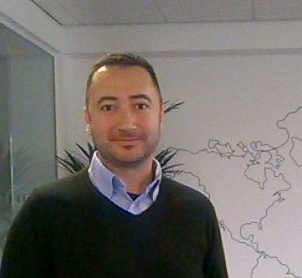
This year’s graduation ceremony sees Institute of Export & International Trade (IOE&IT) students claim their well-earned qualifications, but what is it like working towards one?
We spoke to a current graduate, a past one and a tutor to hear about their experiences.
‘Almost addictive’
William Bullimore is graduating with a level 5 diploma in world customs compliance and regulation—self-taught for much of his career, he found himself wanting a formal qualification to consolidate his experience.
His early experience was positive, he says, guided by the “wonderfully supportive and encouraging” IOE&IT student support coordinator, Maggie Mowle.
Her support was particularly valuable when circumstances meant Bullimore had to consider suspending his participation for a time; Mowle reassured him that he had plenty of time in which to return and complete the course if required, but for now to take it one day at a time.
“I would say happily that [studying with IOE&IT] was a very interesting, enjoyable and rewarding experience thanks to people like Maggie and the excellent tutors that I had.”
Academic study was new to him, Bullimore explains, so he relished the challenge of learning to express ideas in that environment, of finding the right words for what he wanted to say.
So interesting was the process of watching his work develop, he says, it became “almost addictive”.
The future is exciting, he concludes, because he now has confidence and can sit in an interview and explain what he knows “backed up by a qualification” and proof of his expertise.

‘Life-changing’
Former IOE&IT student Alessandro Wagner, who is now customs compliance manager for a multinational operating in the food industry, says his level 5 diploma was of “exceptional quality”, and that it covered all aspects of customs and international trade in a way that was “very clear”.
“The student portal was very easy to navigate and I think the overall course was very well-structured.”
Echoing the praise showered on Bullimore’s tutors, Wagner says that his mentors were “great”, offering “prompt feedback and support”.
Wagner completed his diploma in 2017, and he goes as far as to say that, since then, it has been “life-changing”.
“After my diploma, I was promoted to customs and compliance manager [at the business where I worked]. In essence, this completely and radically changed my career path. Today, I am the customs compliance manager of a large multinational company.”
Wagner calls IOE&IT an “exceptional platform” for getting to grips with international trade, which he calls a “never-ending journey in terms of learning” and “a living document [where] you can never afford to consider yourself arrived at your destination”.
Studying with IOE&IT gives you the opportunity to network and to remain fully up-to-date on changes in trade and customs, he suggests.
To those considering further study with IOE&IT, he says “stick around”.
“I think, particularly in our job, it’s important to keep up-to-date and undergo constant training. I say honestly that IOE&IT is the only place I would personally look when that training is required.”
‘Desire and understanding’
IOE&IT trainer Laura Williams gives an educator’s perspective on training, meanwhile, when she says that the level 4 and 5 diplomas, in particular, “really set a delegate up for roles in customs compliance,” making special note that what they learn can apply “in any sector”.
It’s crucial that those who study for the diplomas know that they are high-level qualifications, and that earning one requires — and demonstrates — dedication, as well as an understanding of the time and effort they take.
“The delegates we get are self-motivated and really driven. By even applying they’ve already shown desire and understanding of what’s needed in customs and trade.”
It’s rewarding for her, she says, noting that level 4 and 5 delegates especially are very good at asking new questions that really make her think. She adds finally that she enjoys seeing them develop their understanding:
“As a tutor, it is a pleasure to be involved in enhancing that knowledge.”


